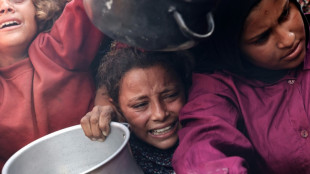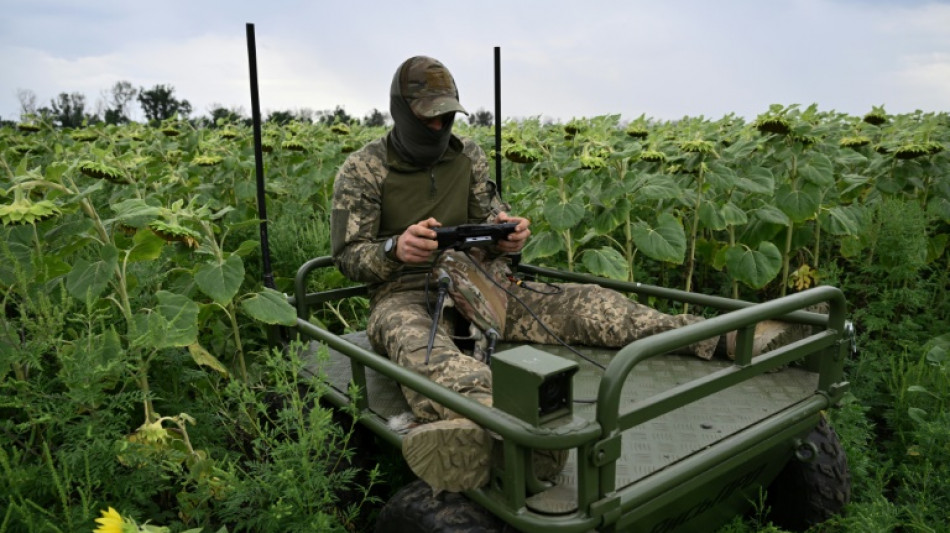
-
 Newcastle can't win in Isak stand-off, says Howe
Newcastle can't win in Isak stand-off, says Howe
-
Doubts over Niger claim that a Boko Haram leader killed

-
 Teenager Wanner signs with Eindhoven from Bayern
Teenager Wanner signs with Eindhoven from Bayern
-
Breetzke, Ngidi star as South Africa crush Australia to win ODI series
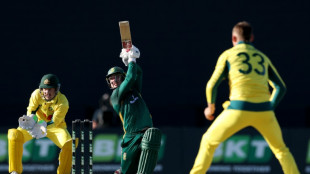
-
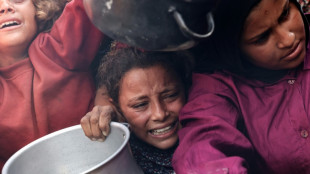 UN declares famine in Gaza as Israel threatens to raze city
UN declares famine in Gaza as Israel threatens to raze city
-
UN declares famine in Gaza, first ever in Middle East
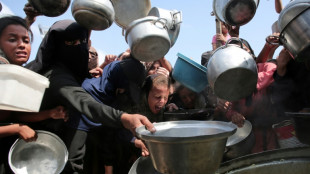
-
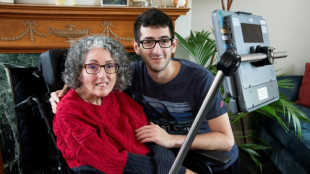 AI helps UK woman rediscover lost voice after 25 years
AI helps UK woman rediscover lost voice after 25 years
-
Women's World Cup games moved out of Bengaluru months after tragedy
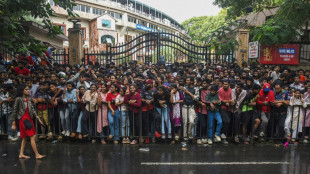
-
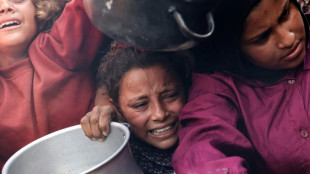 UN declares famine in Gaza, blames Israel
UN declares famine in Gaza, blames Israel
-
Australian Rules player body urges 'united approach' after homophobic slur

-
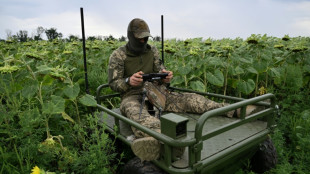 Under a drone canopy, Ukraine army medics rely on robots and luck
Under a drone canopy, Ukraine army medics rely on robots and luck
-
India walks back order to clear Delhi of stray dogs
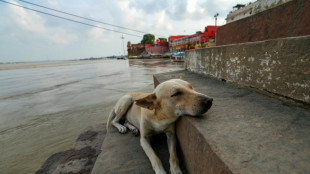
-
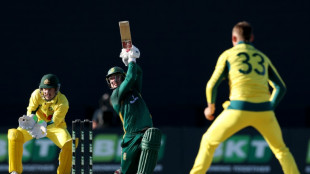 Breetzke, Stubbs star as South Africa post 277 in 2nd Australia ODI
Breetzke, Stubbs star as South Africa post 277 in 2nd Australia ODI
-
Pressure on Merz as Trump tariffs hit German economy

-
 Australia orders audit of crypto trading giant Binance
Australia orders audit of crypto trading giant Binance
-
Israel vows to destroy Gaza City if Hamas doesn't disarm, free hostages
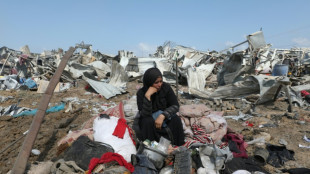
-
 Alonso and Real Madrid look for more fluidity on trip to Oviedo
Alonso and Real Madrid look for more fluidity on trip to Oviedo
-
Bumpy skies: How climate change increases air turbulence
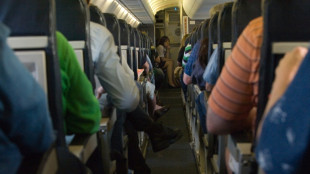
-
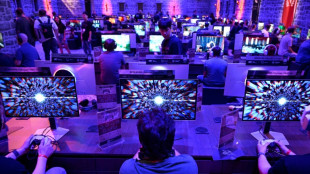 Chinese tiger, French berets and space cannons mark Gamescom 2025
Chinese tiger, French berets and space cannons mark Gamescom 2025
-
US judge orders dismantling of Trump's 'Alligator Alcatraz'
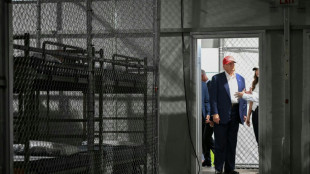
-
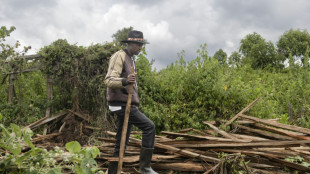 Evicted from their forests, Kenyan hunter-gatherers fight for their rights
Evicted from their forests, Kenyan hunter-gatherers fight for their rights
-
Japan city proposes two-hour daily smartphone limit

-
 A rise in the mountains as Vuelta a Espana cranks up the climbing
A rise in the mountains as Vuelta a Espana cranks up the climbing
-
Thai ex-PM Thaksin acquitted of royal insult charges

-
 Japanese amateur boxer in intensive care after latest incident
Japanese amateur boxer in intensive care after latest incident
-
US wine sellers left in limbo despite EU tariff deal

-
 Erik Menendez denied parole, decades after parents' murders
Erik Menendez denied parole, decades after parents' murders
-
Under Trump pressure, US Fed chief to walk tightrope in speech

-
 Nvidia chief says H20 chip shipments to China not a security concern
Nvidia chief says H20 chip shipments to China not a security concern
-
North Korea's Kim decorates troops who fought for Russia against Ukraine
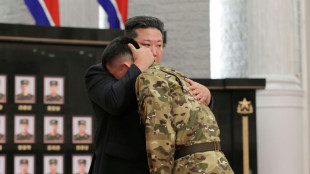
-
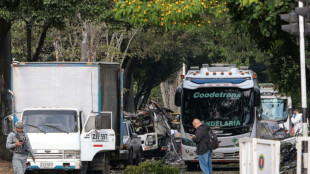 Two separate guerilla attacks kill 18 in Colombia
Two separate guerilla attacks kill 18 in Colombia
-
Rice prices up 91 pct year-on-year in Japan

-
 Asian markets tick up as investors eye Jackson Hole meeting
Asian markets tick up as investors eye Jackson Hole meeting
-
De Bruyne leads Napoli's Serie A title defence as Lukaku injury causes concern

-
 Pollard, Albornoz hailed as key Rugby Championship clashes loom
Pollard, Albornoz hailed as key Rugby Championship clashes loom
-
Marseille plunged into crisis with season just getting started

-
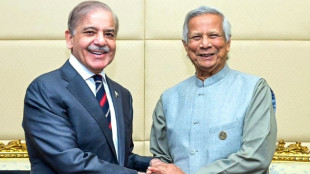 Pakistan woos old rival Bangladesh, as India watches on
Pakistan woos old rival Bangladesh, as India watches on
-
Documents show New Zealand unease over Chinese warships in South Pacific

-
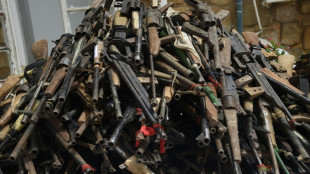 $346 mn US-Nigeria arms deal sets rights groups on edge
$346 mn US-Nigeria arms deal sets rights groups on edge
-
Got the scoop: Bear takes over California ice cream shop

-
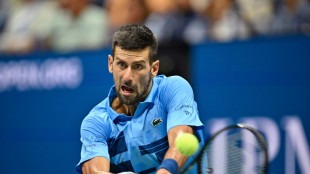 Rested but rusty Djokovic plots US Open ambush
Rested but rusty Djokovic plots US Open ambush
-
'Tough lessons' helping Sabalenka ahead of US Open defence

-
 Meta makes huge cloud computing deal with Google: source
Meta makes huge cloud computing deal with Google: source
-
Blockbuster 'Sincaraz' rivalry ready to light up US Open

-
 Less tax, more luxury: millionaires flock to Dubai
Less tax, more luxury: millionaires flock to Dubai
-
Akie Iwai leads, Canadian teen Deng in hunt at LPGA Canadian Open

-
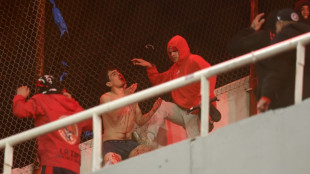 Chile, Argentina football fans trade blame over stadium violence
Chile, Argentina football fans trade blame over stadium violence
-
Palestinian camps in Lebanon begin disarming

-
 Nova Minerals Feature to Air on the RedChip Small Stocks, Big Money(TM) Show on Bloomberg TV
Nova Minerals Feature to Air on the RedChip Small Stocks, Big Money(TM) Show on Bloomberg TV
-
Nitches Provides Audit Update and Operating Readiness Plan


Under a drone canopy, Ukraine army medics rely on robots and luck
When Magician, a Ukrainian serviceman, was remotely steering a robot hauling a wounded soldier away from the front line towards safety, the worst-case scenario played out on his monitor.
The 27-year-old, who asked AFP to identify him by his call sign in line with military protocol, was navigating the bot on a journey with life-or-death stakes when grey smoke appeared on his control screen. His machine had hit a mine.
The proliferation of cheap but deadly drones deployed by Russian and Ukrainian forces has irreversibly changed how the war is being waged -- including how frontline medics retrieve the wounded from the battlefield.
"For five minutes, that person's death was on my conscience," Magician told AFP.
He believed in that moment the mission -- and the soldier's life -- were lost.
The canopy of killer drones blanketing the skies over the front line is forcing military medics to find new ways to move wounded to field hospitals for treatment, including by robot.
At the beginning of Russia's full-scale invasion in early 2022, medics could rush onto the battlefield and carry hurt troops out by stretcher or vehicles.
Drones have made that almost impossible.
Military medic Olena Ivanenko recounted painful episodes when she was unable to reach wounded soldiers less than one kilometre (half-a-mile) away.
"I was hearing their voices on the radio and yet I couldn't do anything," she said.
- 'You're too far' -
The "kill zone," where drones make any movement potentially fatal, stretches for up to 10 kilometres (6 miles) behind the front line on the Ukrainian side, analysts say.
"When a brother or sister dies, it's already done. You can't bring them back, but when there is a chance to save someone and you can't do it because you're too far -- that's very tough," said Ivanenko, a medic with Ukraine's 412th regiment.
The excruciating helplessness has forced medics to get creative in their work.
Ivanenko said her unit often sends food or medication to stranded service members by aerial drone, even sending syringes filled with medicine and explaining remotely how to administer it.
Evacuation robots like Magician's are part of the solution, but only skilled operators can carry out delicate missions.
"It must be done verycarefully you shouldn't make any sudden movements," said Krop, a robot operator in the 5th brigade who also used his military call-sign.
At a training ground in eastern Ukraine, he demonstrated to AFP the nimble movements the robots are capable of, steering it via a hand-held controller complete with a screen and triggers on the sides.
Krop sent the robot ploughing through a sunflower field, and spun the machine in one spot while another pilot held on to the platform for carrying the wounded.
- 'Shaking' -
Their attitudes shift on mission said Bot, a pilot in the 5th brigade.
"It's someone's life," the 24-year-old told AFP. "It's not just a game or a toy. We're not playing."
The robots are slow, which means Russian drones can easily locate and target them, that is if they don't hit mines.
The toll of failed evacuations -- of lives lost -- weighs heavily on the pilots.
"You get half-an-hour of self-flagellation, and then you think 'dammit, it was the bastards who killed them. I wasn't the one who shot them'," Magician said.
Magician thought all was lost when his bot carrying the wounded soldier hit the mine.
But staring at the monitor showing plumes of smoke billowing from the vehicle, he saw a figure crawling to safety and the team dispatched another robot.
"At that moment you're driving and your whole body is shaking -- except the fingers holding the joystick," Magician said.
The return journey lasted hours, including moments that were painful for the wounded soldier, over potholes, dips and bumps.
"I felt a little sorry for him. Fifteen kilometres in a shaking basket isn't very comfortable," Magician said.
"But I pulled him out."
A.Malone--AMWN
